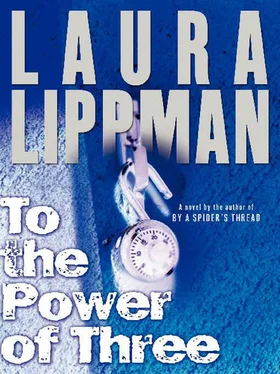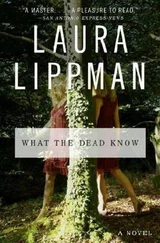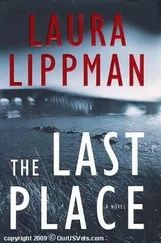Then, just as he was about to close the discussion, Perri raised her hand, confident of being recognized despite the already full slate. She was Giff’s star student-not just talented but hardworking, too, willing to do all the grubby, behind-the-scenes tasks.
“Anyone Can Whistle,” she said. Naturally someone did-whistled, that is-but the boy, a freshman, was silenced by Perri’s withering look.
“Interesting,” Giff said. “Of course, if it’s Sondheim you like, he was the lyricist for Gypsy .” He ran his chalk beneath that title. “And it has such good roles for girls-Louise, June, the strippers. Mama Rose.”
He seemed to be trying, with his emphasis on the last, to remind Perri that she would be the obvious choice for that role.
“But you also need at least four boys who can dance behind Dainty June, and our guys are weak on dancing.” The males grumbled, indignant, but Perri seldom spared anyone’s feelings. “It’s true. We couldn’t let the chorus do the Charleston in The Boyfriend because our guys are so left-footed.”
“Make your case on the strength of your choice, not on the weakness of-” Giff almost said mine, then caught himself just in time. “Of Jill’s.”
“Well, given that three of the show’s original stars were not trained singers, its score is clearly within the range of what we can do. It has a large number of parts-within the mayoress’s cabinet, and the residents of the Cookie Jar-that can be played by either gender, which is always a plus for us. And it hasn’t been staged by any school in the state.”
“There might be a reason for that, Perri. The show was a spectacular failure on Broadway.”
“Yes, but that was the early 1960s,” Dannon Estes put in. “It was ahead of its time.”
“And a little behind now, don’t you think?”
“There are a few dated bits, but some of the satire is more relevant than ever,” Perri said. “A city that relies on one ‘miracle’ to draw tourists-that’s like all those cities that think ballparks are going to be their salvation, right?”
Everyone could tell that Giff was impressed by the last point. Perri had clearly prepared her case well.
“What about its attitude toward the mentally ill?”
“It argues that they should be assimilated. Is that so wrong?”
Giff could not resist needling Perri. “And I suppose you think you could play Cora, the mayoress.”
“Actually, I’d prefer Nurse Fay Apple, although I think I could do the speech and the song. I have the wind.”
Giff had created this monster. He had encouraged Perri in her love of Stephen Sondheim, and now, like every good Stephen Sondheim fan, Perri was steeped in all the backstage lore and trivia. Josie herself had been forced to listen to the original cast album over and over again, with Perri pointing out the highlights. Anyone Can Whistle had originally included a lovely ballad, “There Won’t Be Trumpets,” but it followed a long speech. The song had to be cut because the original actress couldn’t do both. Perri had always longed to sing “There Won’t Be Trumpets,” with its call for an ordinary hero who would arrive without fanfare.
“It depends on rights, you know. It could be very expensive.”
“It’s not,” Perri said. “I checked.”
The students knew that the decision, ultimately, was Giff’s. If he wanted Gypsy, he would somehow get the votes he needed. But perhaps he was swayed by Perri’s passion. Or maybe he was enchanted with the idea of staging a show that no Baltimore-area high school had ever attempted. Perri was a senior, and this would be her last musical. She had earned her star turn.
But he could not give her quite everything she wanted. He told her at callbacks that the part she longed for, the starchy Nurse Fay Apple, was not right for her. Perri was good at the starchy side, much less persuasive when she had to play the character’s alter ego, a sexy French actress. He gave Perri the part of Mayoress Cora, while making Kat Hartigan the nurse.
Under Giff’s usual rules, Kat Hartigan should not have gotten a lead at all. She had not tried out for a single show during her years at Glendale, despite repeated encouragement from the chorus teacher, who admired her pure soprano voice. It was clear to everyone that Kat’s sudden interest in the fall musical was all about sweetening her college applications, adding yet one more extracurricular to her résumé.
But Kat’s voice was strong and she was fetching, as Old Giff was heard to say to the band director. She wasn’t quite as fiery as she needed to be in the angry scenes, but Giff worked to bring that side out of her in rehearsals. Certainly her seduction of Dr. Hapgood was almost too credible. The only thing that was hard to believe was that someone as womanly as Kat Hartigan would really be drawn to the reedy, immature junior cast opposite her. That was the perennial problem with high-school shows. Most of the girls looked grown-up, while the boys were still skinny and unformed.
They were three weeks into rehearsals when the complaints started. Several parents found the show unsuitable, saying it was much too dark for high-school students. And what was the bit about communism, not to mention the exchange about taxes and nuclear weapons? It didn’t seem quite patriotic, did it, given that the United States had thousands of troops in Iraq? The show encouraged a disdain for authority and a distrust of government. Were those values they wanted to endorse?
No one suspected Dale Hartigan of making these arguments. After all, his daughter had the second lead. But Josie heard from Perri that it was Mr. Hartigan, working quietly behind the scenes, who was determined the show would not go on. The rumor was that Mr. Hartigan’s real beef was the mildly suggestive lyrics that Kat had to sing, “Come Play Wiz Me. ” Old Giff argued that she did it so freshly and prettily that it worked for the show in a wholly unanticipated way, underscoring the fact that the sexy French actress was Nurse Fay Apple in disguise. Still, when it was learned that an Equity company in Harrisburg was invoking the 150-mile radius and forcing Glendale to cancel its production of Anyone Can Whistle, gossip continued to blame Dale Hartigan.
Instead of canceling the fall musical, Giff chose Oklahoma!, because he could stage it in his sleep, and he gave Kat the lead. And all the drama students could see that the part of a sweet-but-stubborn Oklahoma farm girl suited her far better than did a two-sided temptress.
They all assumed that Perri would play Ado Annie, every girl’s dream role. But while a dozen girls had been called back for the part in the rushed-up audition process necessitated by the switch, Perri was not among them. She simply refused, and the absence of the obvious favorite stirred up a froth of longing and yearning that verged on hysteria. By the end of the audition, girls were weeping, on crying jags so intense that they had to bring in the guidance counselor, Alexa Cunningham, to calm them down. One girl cried and vomited until blood vessels burst at the bottom of her eyes, leaving her with the red-rimmed pout of a lesser monster on Buffy the Vampire Slayer . She got the part, too, although it was hard not to wonder what Perri might have done with it.
Choosing the male leads should have been blissfully anticlimactic after that sobfest, but Perri threw Giff another curveball by showing up, breasts bound, and demanding a chance to try out for the part of Jud, the lovelorn ranch hand who turns violent at the play’s end.
“C’mon, Perri,” Old Giff said, treating Perri as if she were playing a practical joke. “That just can’t be.”
“But you’re the one who’s always talking about how unusual casting can make people see an old play in a new way, remember? You loved it when the Shakespeare Theater in Washington did Othello with a white actor as the lead and a black actor as Iago.”
Читать дальше












